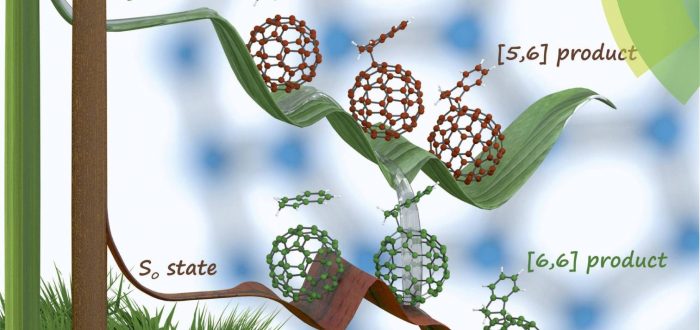A group of chemists from the Euskal Herriko Unibertsitatea (UPV/EHU) and the Donostia International Physics Center (DIPC) lead by Dr. Eduard Matito (ex-member IQCC) together with the IQCC members Mauricio Rodríguez-Mayorga (now in ETH Zurich, Switzerland) and Dr. Miquel Solà, have studied the Coulomb hole of Ne from highly-accurate CISD wave functions obtained from optimized even-tempered basis sets.
- sec.iqcc@udg.edu
- +34 972 41 83 57
Category: Miquel Solà news
A pure computational paper by Miquel Solà, Albert Poater and co-workers has been undertaken to favour the generation of H2, once known experimentally by Milstein and coworkers that Mn-pincer could catalyze the acceptorless dehydrogenative coupling of nitriles and alcohols to yield acrylonitriles. The reaction mechanism proposed in that work contained some intermediates that, in most
Starting 1stJanuary 2019, Olga A. Stasyuk has become a Juan de la Cierva-formación postdoc researcher of the Institute of Computational Chemistry and Catalysis (IQCC) working in the DiMoCat group. Dr. Stasyuk obtained her PhD at the Warsaw University of Technology in 2015. During her doctoral studies under the supervision of Prof. Halina Szatylowicz, she investigated the
Starting 1stOctober 2018, Dariusz W. Szczepanik has become a Marie Sk?odowska-Curie postdoc researcher of the Institute of Computational Chemistry and Catalysis (IQCC) working in the DiMoCat group. Dr. Szczepanik obtained his PhD at the Jagiellonian University (UJ) in 2013 with academic honours. His doctoral research in the field of mathematical chemistry, under the supervision of Prof.
Albert Artigas, Anna Pla-Quintana, Agustí Lledó, Anna Roglans, and Miquel Solà, members of the DiMoCat group of the Institute of Computational Chemistry and Catalysis, have developed a synthetic method to generate open-cage fullerenes in a catalytic process. The Rh(I) catalyst employed is able to promote not only the [2+2+2] cycloaddition reaction but also the subsequent
On 22ndMay 2018, Albert Artigas, a PhD researcher of the Institute of Computational Chemistry and Catalysis (IQCC) working in the DiMoCat group won the second prize of the contest “your thesis in 4 minutes” held at the University of Girona. Albert delivered a brilliant informative lecture entitled “photovoltaic energy”. The PhD thesis of Albert, supervised
In 2015 and 2016, the IQCC organized for the first and the second time the Science Slam, which took place within the general context of the Setmana de la Ciència. This week on Friday May 11 the IQCC organizes the thirdedition to show the most representative research projects of the Institute to a wide audience. The research carried out
A group of chemists from the Universidad Complutense de Madrid lead by Prof. Nazario Martín together with the IQCC members Ouissam El Bakouri (ex-member of the IQCC, now in Uppsala), Miquel Solà, and Marc Garcia-Borràs (ex-member of the IQCC, now in UCLA) have studied the regioselectivity of the Diels-Alder reaction to C60in the singlet ground
Today, Antony A. Stasyuk has become a Juan de la Cierva formación researcher of the Institut de Química Computacional i Catàlisi (IQCC) working in the DiMoCat group. Dr. Stasyuk did his PhD in the Warsaw University of Technology on experimental and theoretical studies of excited state proton transfer (ESIPT) processes under the supervision of Prof. Dr. Daniel T.
A group of chemists from the Universidad Complutense de Madrid lead by Prof. Nazario Martín and from the University of Southampton lead by Prof. Richard J. Whitby together with the IQCC members Sílvia Osuna, Miquel Solà, and Marc Garcia-Borràs (ex-member of the IQCC, now in UCLA) have reported the first chemical modification on the endohedral










